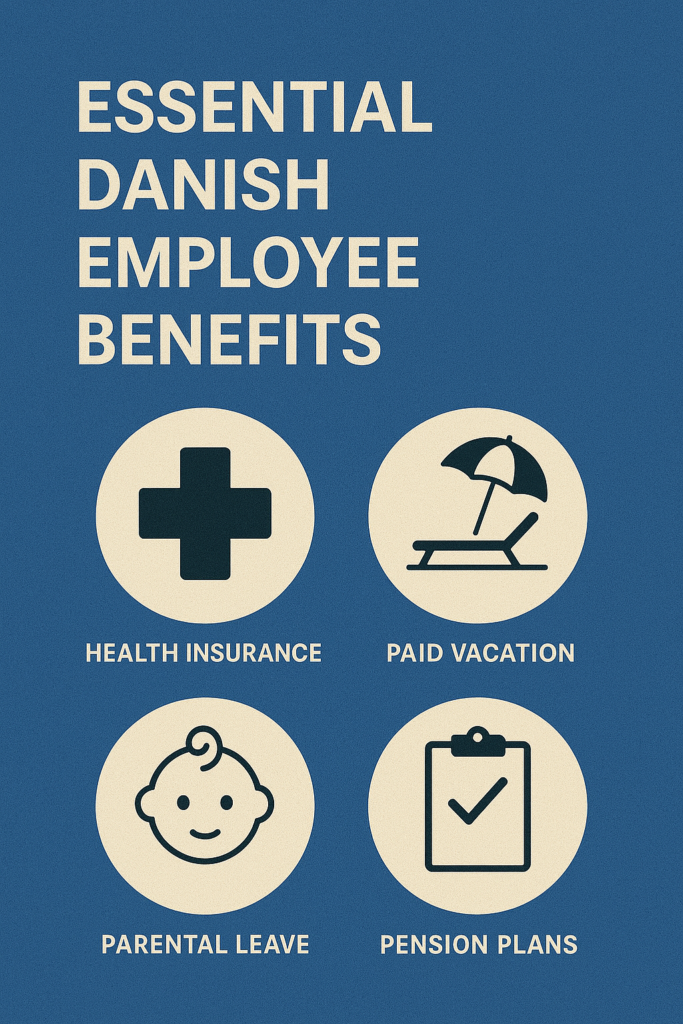Denmark is famous for its hygge, its bicycles, and its incredible work-life balance. But what does that actually mean for you as an employee? How is a workplace defined by trust, flat hierarchies, and mandatory paid vacation different from what you're used to?
For job seekers and expats, understanding Danish work culture is the most crucial step before accepting a job offer. It's not just about the social norms; it’s about your fundamental employee rights in Denmark, from legal protections to social benefits. This guide provides a comprehensive breakdown of everything you need to know. We’ll show you why Danes work fewer hours but get more done, what your rights are, and how this unique labor model can change your life and career.
The Foundation of Danish Work Culture: Trust and Flexibility
The cornerstone of Danish work culture is a high-trust model built on collaboration, not command and control. You will likely find a flat hierarchy where managers and employees work as a team. Titles matter less than competence. It is common to address your manager by their first name and to openly contribute ideas regardless of your seniority. This approach fosters a sense of ownership and personal responsibility.
You'll also notice a strong focus on flexibility. The standard work week is 37 hours, and many companies offer flexitime, allowing you to manage your work around personal appointments or family needs. This isn’t seen as a privilege but as a tool to improve productivity and well-being. The result is a highly engaged workforce that is more efficient and less prone to burnout.

Work-Life Balance in Denmark: More Than a Buzzword
The reputation for a great work-life balance Denmark is well-earned. It is deeply embedded in both the culture and the labor laws.
- Shorter Work Hours: The average working hours per week are among the lowest in the OECD. This is not due to a lack of productivity, but to a collective belief that a healthy personal life leads to better professional performance.
- Mandatory Paid Vacation: By law, all employees are entitled to a minimum of five weeks (25 days) of paid vacation per year. This is a non-negotiable right that is taken seriously by both employers and employees.
- Family-First Mentality: Taking time off to care for a sick child, attend a parent-teacher meeting, or simply be with your family is not frowned upon. Companies understand and support these needs, seeing them as part of a healthy employee's life.

Key Employee Rights in Denmark
Your employee rights in Denmark are protected by a system of collective agreements and labor laws. This provides a strong safety net for all workers, including expats.
- Contracts: Every employee is entitled to a written contract that specifies the terms of employment, including salary, hours, job title, and notice period.
- Sick Pay: Employees are entitled to full pay during periods of sickness, though the specific duration can vary based on your contract and collective agreement.
- Maternity/Paternity Leave: Denmark offers some of the most generous parental leave policies in the world. Parents are entitled to a combined 52 weeks of leave, with a significant portion paid.
- Unemployment Benefits: By joining an A-kasse (unemployment insurance fund), you can receive substantial financial support if you lose your job. Membership is voluntary but highly recommended for job security.
- Notice Period: The minimum notice period for dismissal is legally defined and increases with your length of service, offering a layer of financial security.
For more details on your visa and residency rights, please consult our guide on Jobs in Denmark for Non-EU Applicants.

Navigating Labor Laws and Agreements
Unlike many other countries, labor laws Denmark are not defined by a high number of government statutes. Instead, they are primarily governed by collective agreements between unions and employer associations. This is known as the "flexicurity" model.
- What is Flexicurity? It is a combination of flexible hiring and firing policies for companies and a strong social safety net for employees. It allows the job market to adapt quickly while protecting workers from financial instability.
- Unions: While not mandatory, joining a union is highly recommended. Unions negotiate collective agreements and provide legal support, salary advice, and advocacy on your behalf.

Essential Danish Employee Benefits
Beyond salary, Danish companies offer a robust benefits package that contributes to an employee's overall well-being.
- Pension Scheme: Most employers make significant contributions to your pension fund (ATP), which is a key part of your total compensation.
- Healthcare: All residents with a CPR number receive free public healthcare. Your Yellow Health Card gives you access to a general practitioner and hospital services.
- Education and Training: Companies often invest in employee training and development, seeing it as a way to build long-term value and keep skills current.

The Expat Experience: Challenges and Opportunities
The transition to working in Denmark can be challenging for expats, particularly those from different cultural backgrounds. The Danish workplace might seem quiet or reserved at first. Social events often revolve around the workplace, and integrating can take time. Our guide on how to get hired in Copenhagen can help with the initial job search.
However, the opportunities are immense. The Danish job market is open to international talent, especially in high-demand sectors like IT and technology. You can learn more about specific roles in our guide to IT Jobs in Denmark.
The work-life balance allows for personal growth, hobbies, and family time. It is a culture that respects your time and your contributions, rewarding efficiency over long hours.

Quick Answers to Your Top Questions
Employee rights in Denmark include entitlements to paid vacation (five weeks by law), sick pay, and legally protected notice periods for termination.
While overtime does occur, it is generally discouraged. The culture values efficiency within the standard 37-hour work week, and overtime is often compensated with time off in lieu.
The standard and average work week in Denmark is 37 hours.

Conclusion: Your Guide to Thriving in Denmark
Understanding Danish work culture is the key to a successful transition. It's a system built on mutual trust, clear employee rights in Denmark, and a deep respect for personal time. This approach not only creates a better life for employees but also a more productive and innovative economy.
By embracing the Danish way of working, you will find a career that supports your ambitions without compromising your life. Ready to find your next opportunity?
Start exploring job opportunities in Denmark and check salaries instantly with Dr. Job Pro. Find your next job in Denmark with our comprehensive listings.

FAQs
The biggest challenge for expats is cultural integration. While many companies operate in English, learning Danish will significantly help with social integration and daily life. The professional environment is welcoming to foreign talent.
This depends on your specific contract and collective agreement. In many professions, it is not a standard practice, and if required, it is usually compensated with additional pay or time off.
Danish contracts are straightforward. They will specify your work hours, vacation entitlement, salary, notice period, and a reference to the relevant collective agreement or labor law. They are built for clarity and transparency.
No. While there is a flexible termination model, Danish labor law and collective agreements require a valid reason for dismissal. The reason must be fair and objective.
Maternity leave is typically 4 weeks before birth and 14 weeks after. Paternity leave is 2 weeks within the first 14 weeks. An additional 32 weeks can be split between the parents. The state and your employer provide benefits during this time.

About the Author: Suleiman Alnsour
Suleiman Alnsour is a career strategist with over 6 years of experience in recruitment and labor market analysis, focused on the Danish and Nordic regions. He specializes in simplifying complex relocation and hiring workflows, providing actionable advice on everything from visa pathways to salary benchmarking.









 2025-04-03
2025-04-03
 2023-03-08
2023-03-08
 2022-11-11
2022-11-11
 2022-11-10
2022-11-10
 2022-11-05
2022-11-05